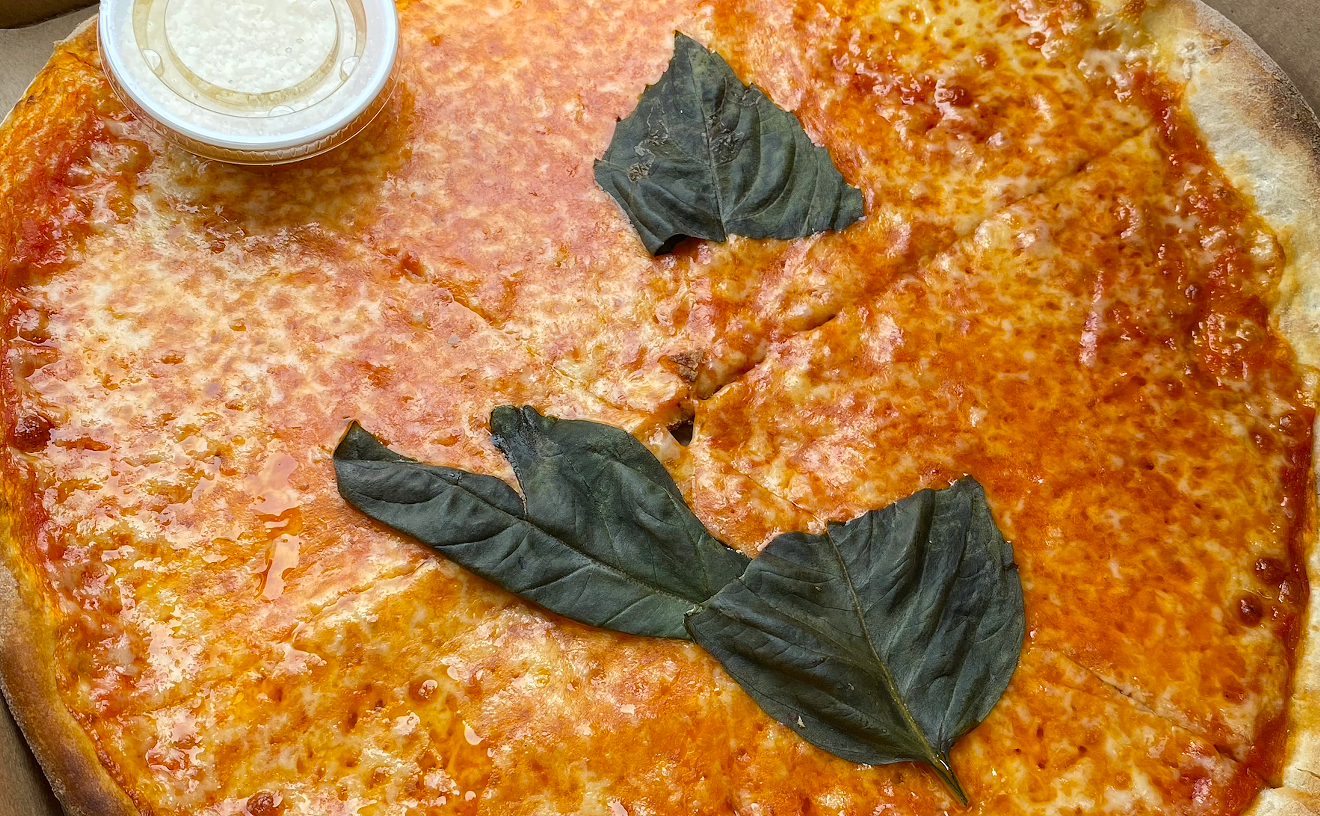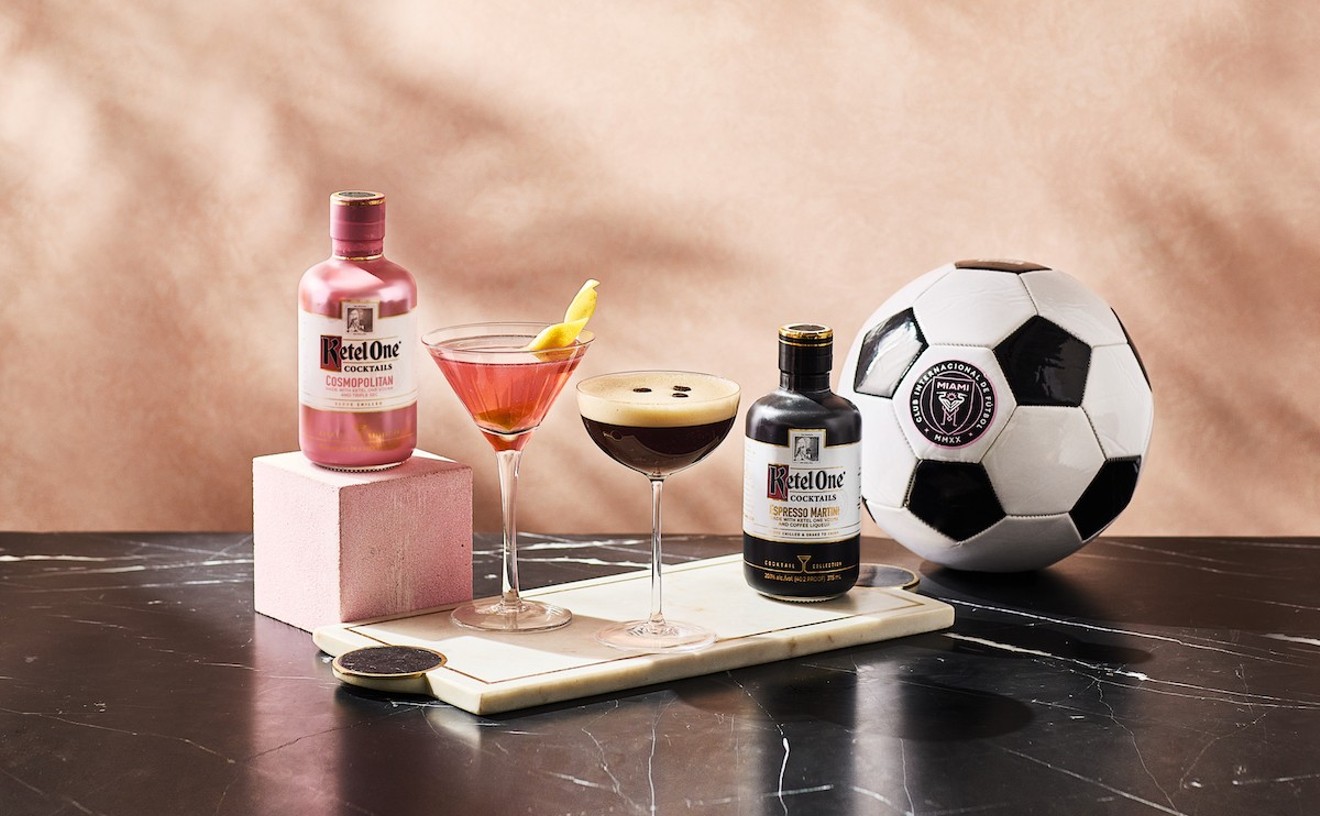Monday nights are a good time to go out for dinner. Sometimes at the start of a busy workweek, you just don't have the head for cooking.
Still, it was shocking to find all 200 seats filled at Kaluz on a recent Monday. The cavernous, modern space was just 2 months old but packed with a noisy mix of snowbirds, families, and somber-faced men still in business attire.
The lucky ones were seated at dozens of dark tables set with black napkins, and they looked out through 20-foot-tall windows onto the deep-blue Intercoastal Waterway. Luckier ones got tables outside on the waterfront patio, accompanied by a soft breeze, the darkening blue sky, and the gentle lapping of water against a short seawall.
The rest of us could choose: wait 45 minutes for one of those tables or sit inside immediately. Inside it was.
And then, if not magic, something like it.
A shrimp and portobello mushroom flatbread ($15) — if it sounds familiar to Seasons 52, it's because it is — arrived at our table no more than five minutes after it was ordered, with textbook execution. Each piece was cracker-thin crispy and topped with a smattering of shrimp and meaty slices of mushroom. A combination of goat cheese and onions cooked in earthy balsamic vinegar until sticky provided the salty-sweet contrast.
A Grand Marnier bread pudding ($8) was also one of the fastest dishes we've ever been served. And again, the dish was solid. The tall, firm cube of sugar and milk-soaked bread came in a wide bowl filled with cream and gave off the sweet smell of vanilla caramelized sugar. There was no trace of the pungent orange liqueur, yet the eggy bread was fluffy and sweet thanks to being fully soaked in a mixture of little more than milk, eggs, and sugar.
Perhaps most stunning: In a region famous for horrible service, waiters not even assigned to our section cleared bits of trash off the tables and asked if they could bring anything.
How could a restaurant, this new and this big, be so popular and so efficient — and so soon?
Awe turned to suspicion. There must be something funny going on.
Interrogated on the phone, managing partner David Baldwin revealed his secret: a background at Houston's Steakhouse.
Baldwin worked for Houston's in the 1990s after graduating from the University of Wisconsin. Houston's, now called Hillstone, is famous for its rigorous training program, high standards, and machine-like efficiency. Servers have to memorize each ingredient in every dish. Anyone gunning for a manager's job has to accumulate experience in every job in the restaurant, from prep cook to host. If she landed it, she'd have to develop strategic plans for sales and human resources.
"I think trying to instill a sense of consistency was the main thing that made Houston's so successful," Baldwin says. "That was one of the things ingrained in me, having standards and sticking to them."
A friend offered Baldwin the opportunity to move to Argentina to run the first outpost of Kansas City Bar & Grill, a Buenos Aires restaurant from Carlos Dermirdjian, formerly president of Sensormatic, a company that makes tags that go on clothes and goods for loss prevention. (Sensormatic was bought by Tyco and based in Boca Raton, where Dermirdjian has a home.) Kansas City was an American steak house that served ribs, seared tuna with couscous, and Key lime pie. Baldwin's initial contract was for two years, but one restaurant turned into two, then three. Two years became 12. After more than a decade in Argentina, it was time to return.
"I was down there for such a long time," Baldwin says, "I just wanted to get back home."
Baldwin teamed up with Dermirdjian and several Argentine investors. Dermirdjian is the sole manager of Kalik LLC, which owns the land bought in late 2010 for $5.5 million; Baldwin is sole manager of Arka Grill Co. LLC, which owns the restaurant. Their idea was to offer a high-end version of American cuisine but to stay away from the $60-per-person check.
"You can come in and have a burger and a Coke and spend less than $20," Baldwin says, "or you can spend $35 on a lamb chop."
Because of Dermirdjian's business ties and Baldwin's hankering for warm weather, the team was set on South Florida from the outset ("I lived in Wisconsin," Baldwin says. "That should say enough.") and looked at sites in Palm Beach, Broward, and Miami-Dade before settling on the 5,000-square-foot waterfront site that hosted a shuttered Roadhouse Grill. It spent about $2 million transforming the property — "The bills are still coming in," Baldwin says — and threw open the doors of Kaluz in mid-February.
There's no story behind the unusual name; they just made one up.
"It doesn't come from anything. How did they get Google?" he added. "If you put a name with a theme, people already have a predisposition before they get inside the restaurant."
Baldwin says they stayed away from naming it Kansas City Grill because it felt too risky to try to open an American steak-house concept in America. But they stuck with a K name "for posterity's sake," he says.
The two-page menu offers mostly fried appetizers, plus a trio of flatbreads, salads, burgers, sandwiches, and entrées. Prices range from $13 for a grilled chicken club on multigrain bread to a $32 rack of lamb with a side of shiitake mushroom risotto.
Cooks at Kaluz seem to execute the menu with ease from inside a fish-tank-looking kitchen. Four of them, wearing matching pumpkin-orange chef's coats and tight-fitting black caps, are separated from the restaurant behind tall, thick panels of tempered glass.
At $16, a lamb burger's sweet-salty combination — caramelized onion and goat cheese on top of a juicy, well-cooked lamb patty — lit up the senses. Thin French fries came out crisp and salty with a touch of Parmesan.
Four fat diver scallops ($29) were crisped on one side and cooked just enough, leaving the center of each creamy and briny. A cold red quinoa salad was studded with sweet dried cranberries, diced red onion, and rainbow bell peppers. The grain, native to Central America and now the healthy ingredient of the moment, was unexpected but made the dish fresh and light.
Baldwin says the restaurant makes an effort to use local produce and seafood from Q Plus Foods in Fort Lauderdale, but he admits sourcing from food giants Sysco and Cheney Brothers.
The corporate touch was obvious in the "American Kobe Style Beef Ribs" ($33) — nine ribs in a sweet but bland barbecue sauce. Educated eaters know there is no such thing as "American Kobe Style." Just as only sparkling white wine from one region of France may be called Champagne, only beef from cows of the black, Tajima-ushi strain of Wagyu cattle, raised according to strict regulations and in Hyogo Prefecture in southern Japan, can be called Kobe. The Wagyu bloodline has been imported to the U.S., and the meat from those cattle can be as juicy and flavorful as real Kobe beef, but the use of the word is a marketing gimmick.
Still, Kaluz makes no bones about the animal it is: not a trendy farm-to-table concept nor a loungey hipster hang but a calm, grown-up restaurant, a good choice for a business meeting or a double date. It's got the same goals as any growth-hungry restaurant company: Find a niche, develop a concept in which the menu and service standards can be replicated, then call in the real estate team to expand.
If you go, make a reservation. And see if you can invest. No doubt this is a place that Darden — owner of omnipresent chains Olive Garden, Red Lobster, Capital Grille, and more — will soon have its eye on.











